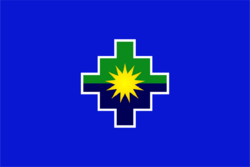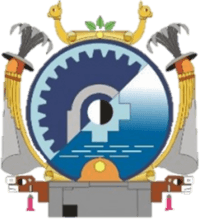Puno Region facts for kids
Puno is a special region in Peru. It is located in the southeastern part of the country. The main city, which is also called Puno, is the capital of this region. Puno is right next to the country of Bolivia. A big part of the famous Lake Titicaca is found in the Puno region.
Contents
Where is Puno?
Puno is in the Andes Mountains, which are very high. It is known for its beautiful landscapes and its connection to Lake Titicaca. This lake is the highest navigable lake in the world! The region has different types of land, from high mountains to the shores of the lake.
What is Puno Like?
Puno is often called the "Folkloric Capital of Peru." This is because it has many traditional dances, music, and festivals. People in Puno love to celebrate their culture. The region is also famous for its history, especially its connection to ancient civilizations like the Incas and the Tiwanaku.
People and Culture
The people of Puno are mostly Quechua and Aymara. They speak their native languages, as well as Spanish. They keep their traditions alive through their clothing, food, and daily life. Many people in Puno work in farming, raising animals, or making crafts.
Lake Titicaca
Lake Titicaca is a very important part of Puno. It is a huge lake that is shared between Peru and Bolivia. The lake is home to unique islands, like the Uros Floating Islands. These islands are made entirely of reeds by the Uros people. You can also visit natural islands like Taquile and Amantani, where people live in a traditional way.
What Can You See in Puno?
Puno offers many interesting places to visit.
- Puno City: The capital city has a main square, a cathedral, and a viewpoint where you can see the city and the lake.
- Sillustani: This is an ancient burial ground with tall stone towers called chullpas. They were built by the Colla people before the Incas.
- Uros Floating Islands: Take a boat trip to these amazing islands made of totora reeds. You can learn how the Uros people live on them.
- Taquile Island: Known for its skilled weavers. The men here knit and the women spin wool. Their textiles are very famous.
- Amantani Island: Another peaceful island where you can stay with local families and learn about their way of life.
Climate and Weather
Puno has a cool climate because it is so high up in the mountains. The days can be sunny, but the nights are often cold. There are two main seasons:
- Dry Season: From May to October, with sunny days and cold nights. This is a good time to visit.
- Rainy Season: From November to April, with more rain and occasional thunderstorms.
Images for kids
See also
 In Spanish: Departamento de Puno para niños
In Spanish: Departamento de Puno para niños
 | Jackie Robinson |
 | Jack Johnson |
 | Althea Gibson |
 | Arthur Ashe |
 | Muhammad Ali |





